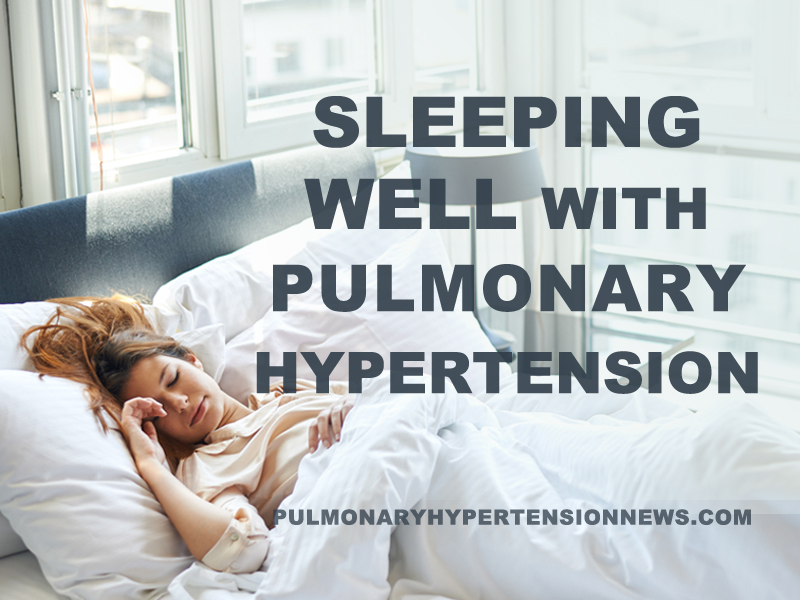Sleeping Well With Pulmonary Hypertension

According to Pulmonary Hypertension Association, everyone benefits from a good night’s sleep, but it’s essential for those with PH. Check out the tips below to help you get your Zzzzs.
Maintain good sleep habits:
- Stick to a regular schedule during the day. Try to wake up and go to bed at the same time each day.
- Resist the urge to sleep in even if you didn’t sleep well the night before.
- Don’t exercise within three hours of going to bed.
- Try not to nap. If you’re really sleepy, only take one nap and do it before 3:00 p.m.
- Create a bedtime routine you can go through for about 30 minutes before going to bed, such as reading, listening to music, etc.
- Don’t drink caffeine within six hours of going to bed. Try to take caffeine out of your diet completely; remember that it is a stimulant and will likely increase your heart rate.
- Don’t use nicotine (as in tobacco products). This is also a stimulant. If you do smoke or chew, make an effort to stop; it will prolong and improve your quality of life.
- Don’t eat a large meal before you go to bed; a light snack is preferred for those who are diabetic or those who can’t go through the night on an empty stomach.
- Don’t drink alcohol within six hours of going to bed. It is preferred that PAH patients avoid alcohol in any event since it can affect your liver, which is already being challenged by chronic heart failure. It can also interact with several medications that you may be taking, especially anything you may take for sleep.
- Limit any intake of fluid at least two hours prior to going to bed so that you don’t have to get up and urinate at night, which then makes it harder to go back to sleep. For those on diuretics (water pills), remember not to take them later than 5 p.m. or you may also be up several times in the night.
- Make your bedroom a room for sleep. Move distractions, like a computer or a television, out of your bedroom. Make your sleeping environment as comfortable as possible.
- If you have a diagnosis of sleep apnea, work with your sleep team to get a comfortable fitting mask, a quiet device and, most importantly, be compliant. If you use oxygen, move the concentrator into another room so it will be quieter in your bedroom.
- If you can’t get to sleep within 15 minutes of lying down, get up and do a quiet activity in another room until you feel sleepy and then lie down again.
Learn more about Pulmonary Hypertension: https://bit.ly/1K4oewk
Read full article: https://bit.ly/1T3W9vA
Note: Pulmonary Hypertension News is strictly a news and information website about the disease. It does not provide medical advice, diagnosis or treatment. This content is not intended to be a substitute for professional medical advice, diagnosis, or treatment. Always seek the advice of your physician or other qualified health provider with any questions you may have regarding a medical condition. Never disregard professional medical advice or delay in seeking it because of something you have read on this website.







